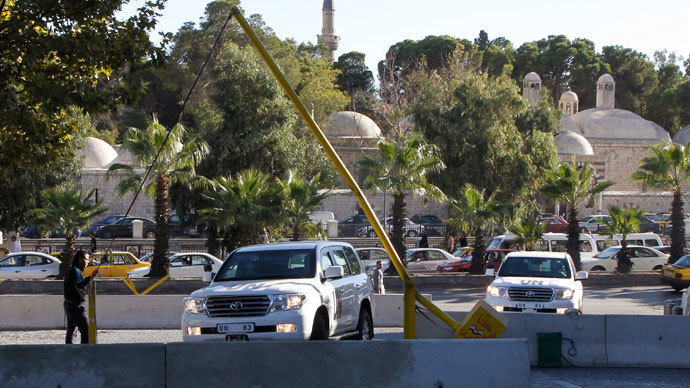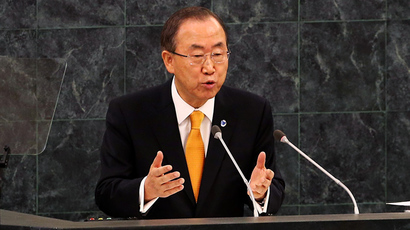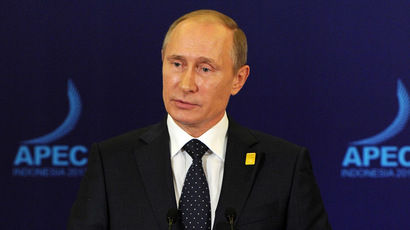Syrian govt ‘quite cooperative’ as inspectors begin checks at 20 chemical sites

The Syrian government has been “quite cooperative” in the early stages of the destruction of its poison gas stockpiles, global chemical weapons watchdog OPCW said, adding that its experts would need to check some weapons 20 sites in the country.
“The cooperation has been quite constructive and I would say
the Syrian authorities have been cooperative," Ahmet Uzumcu,
director-general of the Organization for the Prohibition of
Chemical Weapons, told reporters in The Hague.
International experts from the United Nations and OPCW have so
far visited one chemical facility in Syria and are just about to
examine another one, he said, with the country making “a
constructive beginning for what will nonetheless be a long and
difficult process.”
The mission will have to check about 20 sites in the coming days
and weeks, with the organization planning to negotiate a
ceasefire in some areas “to permit our experts to work in a
permissive environment,” Uzumcu said.
The OPCW chief described the plan to eliminate Syrian chemical
weapons by mid-2014 as "realistic," as long as it receives
the necessary support from all sides of the conflict and the
international community.
Another group of 12 international experts is preparing to leave
for Syria to speed up the process. They must arrive in the
country “as soon as possible,” Uzumcu said.
There are currently 19 inspectors from the joint UN-OPCW mission
working in Syria, where the civil war between the government and
Islamist rebels has been raging since March 2011, claiming more
than 100,000 lives.

The government of President Bashar Assad in Damascus submitted a declaration of its chemical weapons arsenal to the OPCW in September. Uzumcu said that his organization so far has not received any requests from member states to perform inspection at facilities not mentioned by the Assad government.
The information on Syria’s chemical weapons arsenal hasn’t been
made public, but chemical weapons experts believe that the Middle
Eastern country possesses around 1,000 tons of sarin, mustard and
VX nerve gas.
According to the US-Russian deal brokered in Geneva last month,
Syria has until November to destroy chemical weapons production
facilities and weapons-filling equipment, with its entire
chemical weapons program to be completed by June 30, 2014.
The Syrian government began destroying the first chemical weapons
last week, with OPCW experts labeling the actions from the
country’s authorities “an excellent start.”














